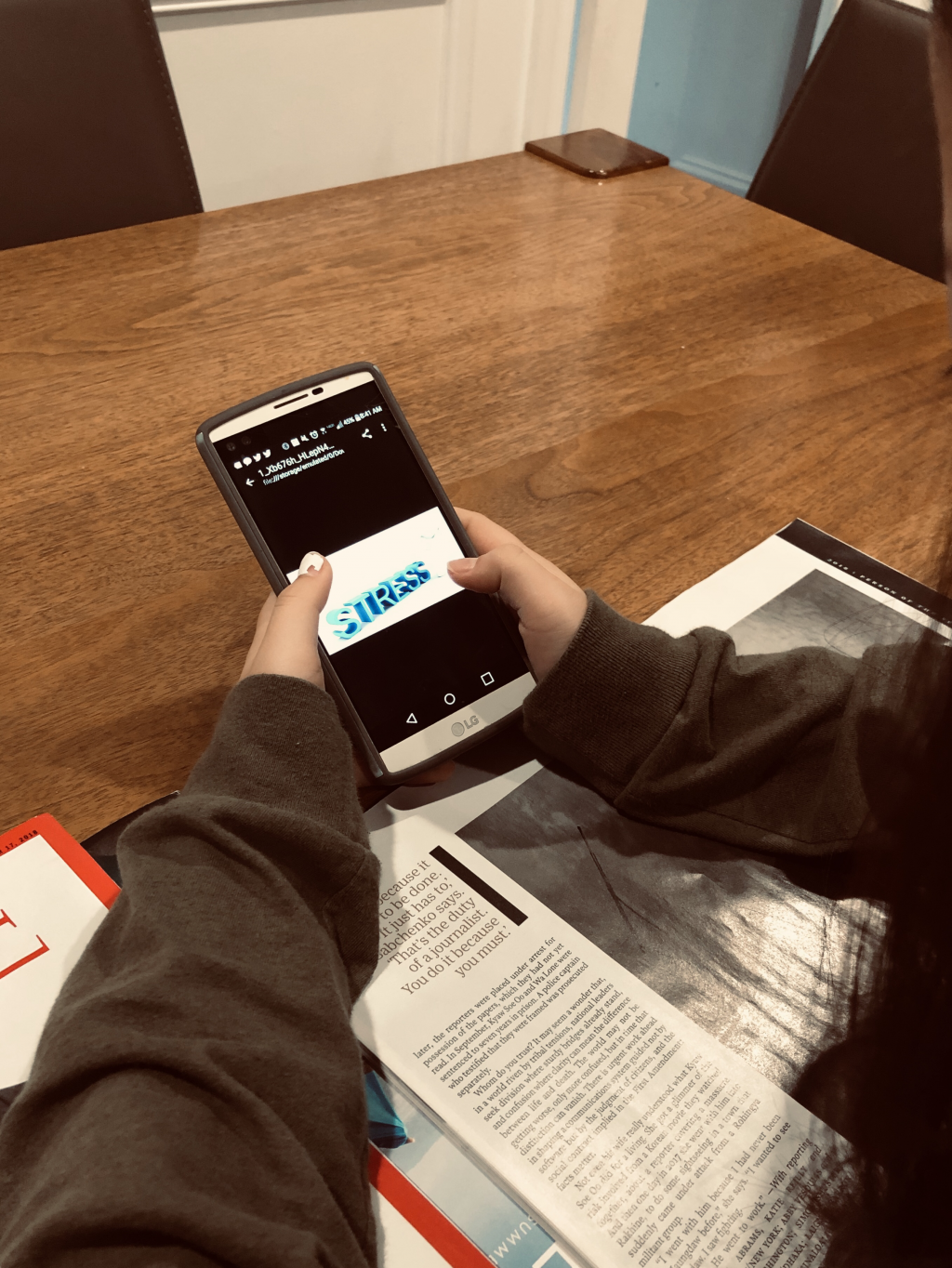With nearly 300 million cell phones being used in the United States alone, many wonder what the effects of cell phone usage really are. For students and teenagers specifically, cell phones have developed a reputation of being detrimental to people and their emotional stability.
But how harmful can excessive cell phone use be? Dr. Nancy Cheever, who started research between cell phone use, anxiety, and stress at California State University, warns that there is little information about the long term effects that cell phone use will have on human brains. However, we do know that cell phones can disrupt one’s sleep cycle as new notifications and constant buzzing distract him or her from getting to bed. In addition, excessive cell phone use can have a great impact on how much an individual spends time with family. According to a survey enacted by the American Psychological Association (APA), the presence of technology made almost half of the surveyed parents feel less connected to their children, despite the fact that they were physically spending time together. Additionally, 60% of parents can admit that they worry about the harmful impact that social media and technology can have on their children’s mental and physical health. However, the majority of parents are also finding ways to cut back on their children’s time on social media. 94% of parents say they limit their children’s screen time, setting rules like not allowing phones at the dinner table or restricting their use before bed. Although parents create these boundaries, 60% still say that they feel as though their children are addicted to their cell phones.
The impact of cell phones on teenagers can totally alter their quality of life, specifically in regards to levels of stress. Teenagers feel a need to reach for their phones the moment they buzz. When someone receives a text message, they are under pressure to immediately open it and answer, regardless of what they are doing at the time. In fact, through various experiments, it was revealed that when teenagers cannot get access to their ringing phones, they exhibit symptoms similar to those of an anxiety attack. Many teenagers feel a certain amount of stress to be constantly available to their friends and family, and feel disoriented when their connection is cut off.
In a new research study conducted by Karla Klein Murdock of Washington and Lee University, Murdock followed 83 first-year undergraduates and recorded how their cell phones affected their stress and academics. Murdock developed a hypothesis that “Higher levels of interpersonal stress were expected to be linked to higher levels of burnout, sleep problems, and lower levels of emotional well-being” (Murdock). Statistical analysis of these undergraduates proved this hypothesis to be factual. The time and energy that students spend on their personal cell phones creates interpersonal stress because of the nonstop social media use that they believe they need.
Because the use of cell phones constantly growing, people need to be aware of the effects that phones can have on their own lives. Excessive cell phone use especially takes a toll on students and affects them in their academic lives. With this in mind, we must ask ourselves one question: is all this time on our phones really worth it in the future?
Anna Meringolo
staff writer
Graphic: Ryan Rhew

